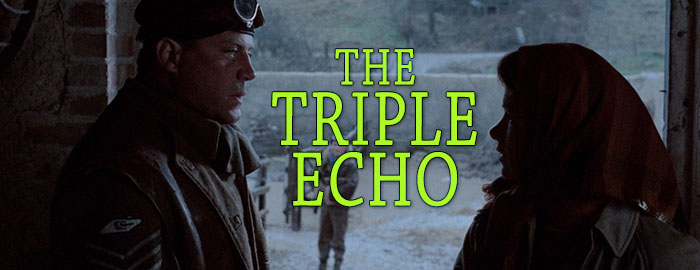
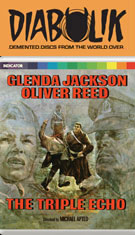

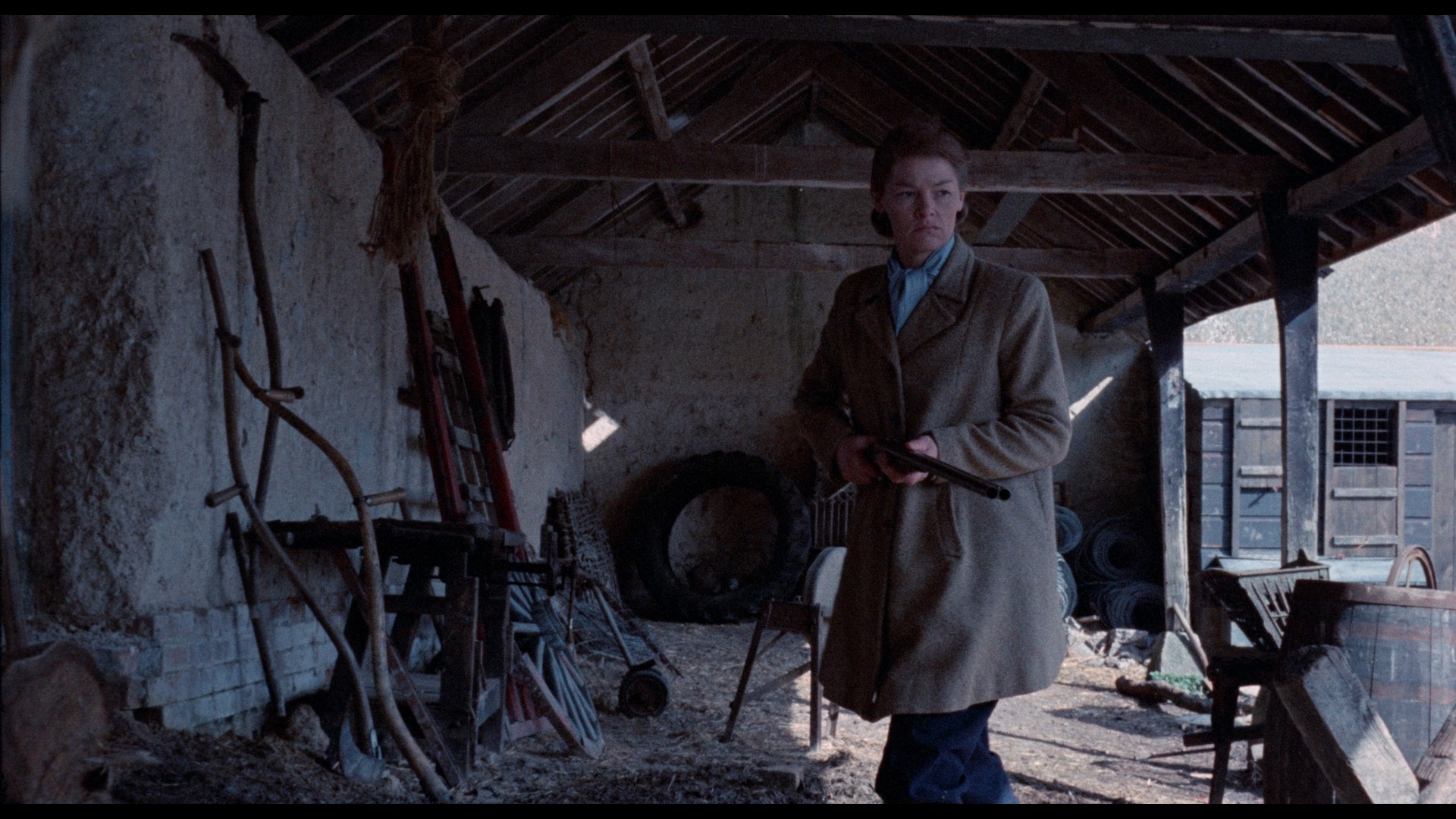 cutting his teeth on British
cutting his teeth on British 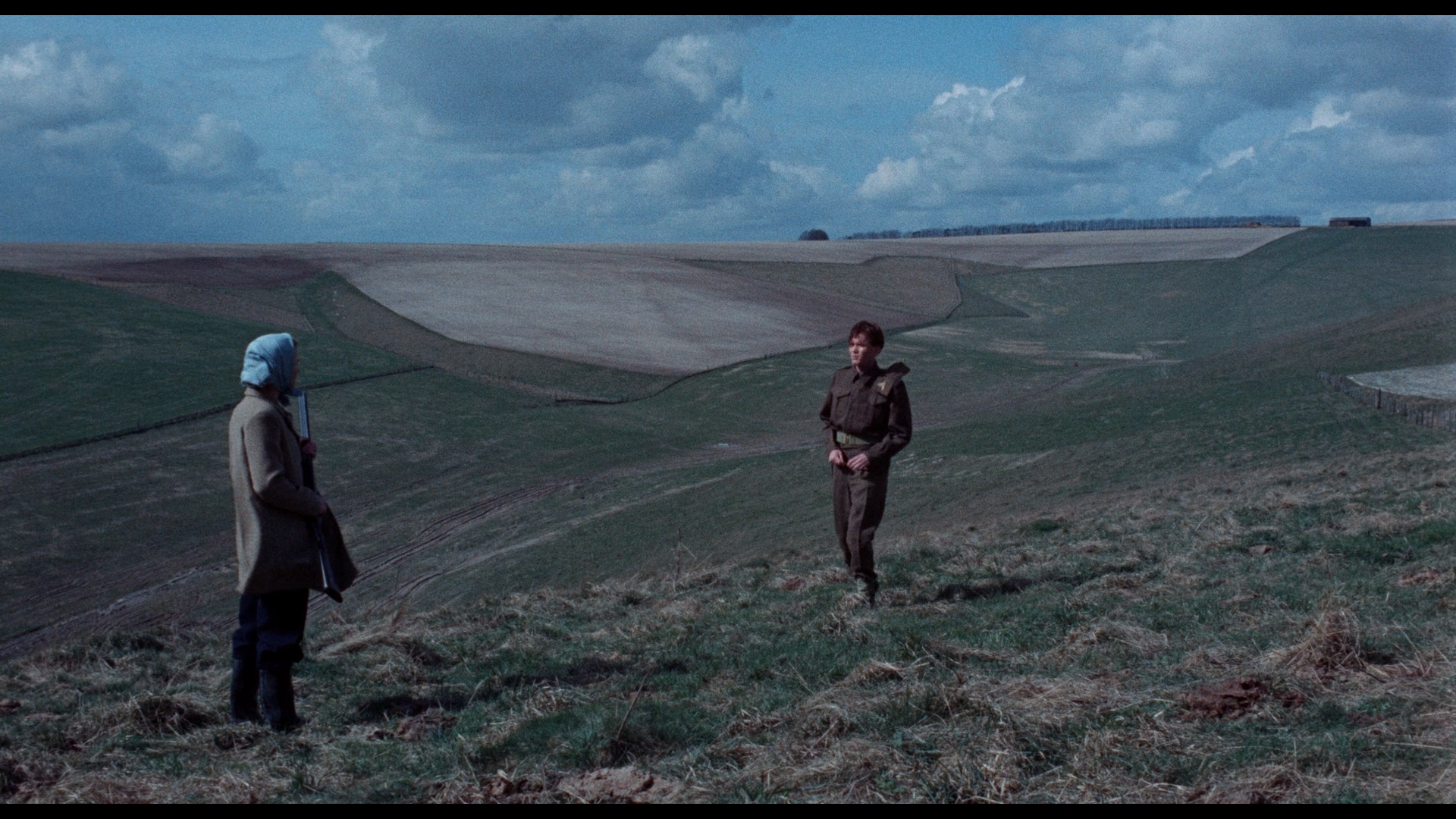 television and inaugurating what would become his landmark Up series (with updates shot every seven years), Michael Apted made his feature film debut with The Triple Echo, a gripping little countryside chamber piece centered around three strong performances and a peculiar narrative gimmick that made it a challenge to market at the time. Women in Love stars Glenda Jackson and Oliver Reed are reunited here and get a fine showcase that allows them to flex their dramatic muscles in some interesting ways, with then newcomer Brian Deacon (Vampyres, A Zed and Two Noughts) also making his first big screen appearance.
television and inaugurating what would become his landmark Up series (with updates shot every seven years), Michael Apted made his feature film debut with The Triple Echo, a gripping little countryside chamber piece centered around three strong performances and a peculiar narrative gimmick that made it a challenge to market at the time. Women in Love stars Glenda Jackson and Oliver Reed are reunited here and get a fine showcase that allows them to flex their dramatic muscles in some interesting ways, with then newcomer Brian Deacon (Vampyres, A Zed and Two Noughts) also making his first big screen appearance.  deception soon becomes apparent.
deception soon becomes apparent. 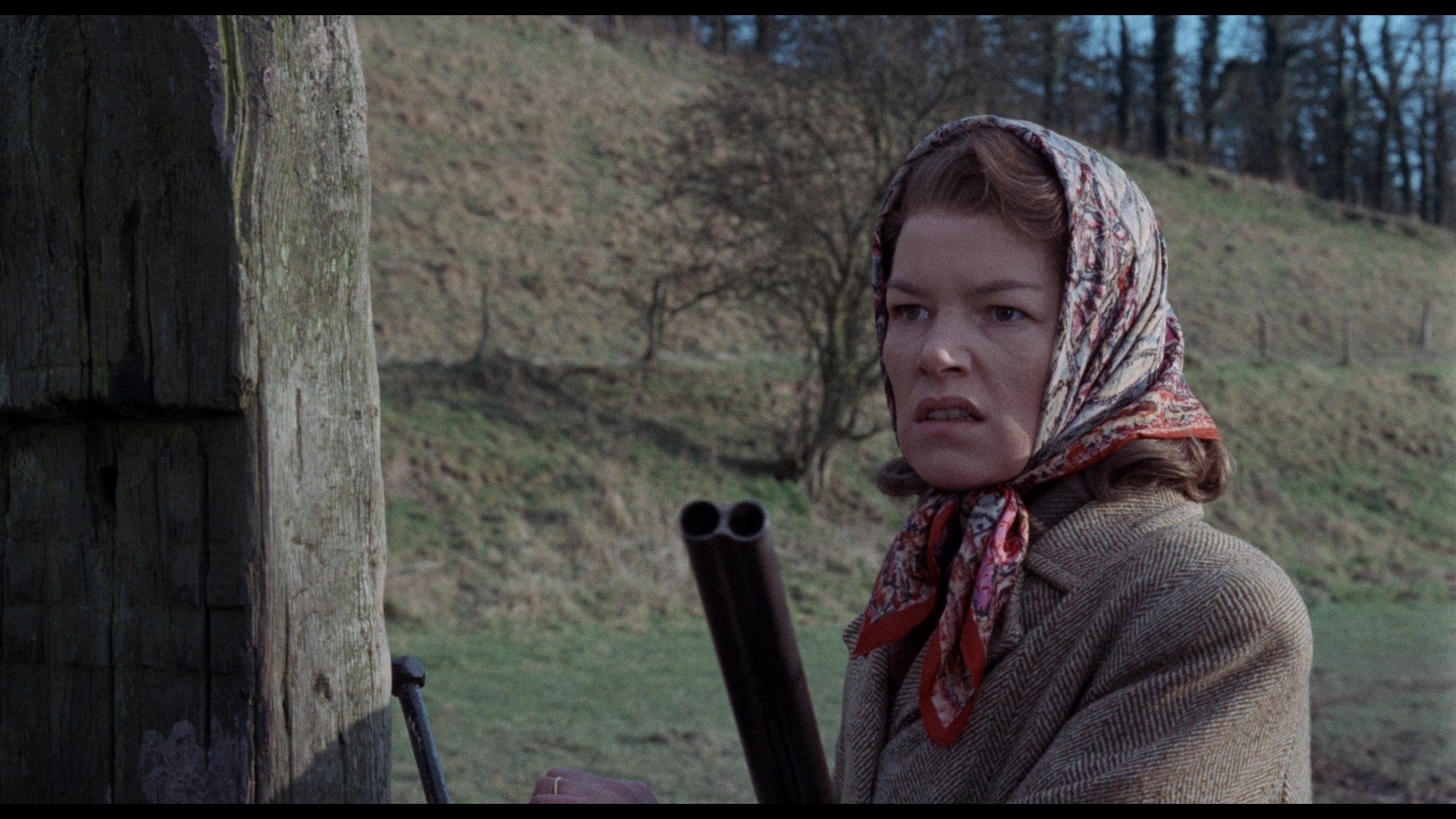
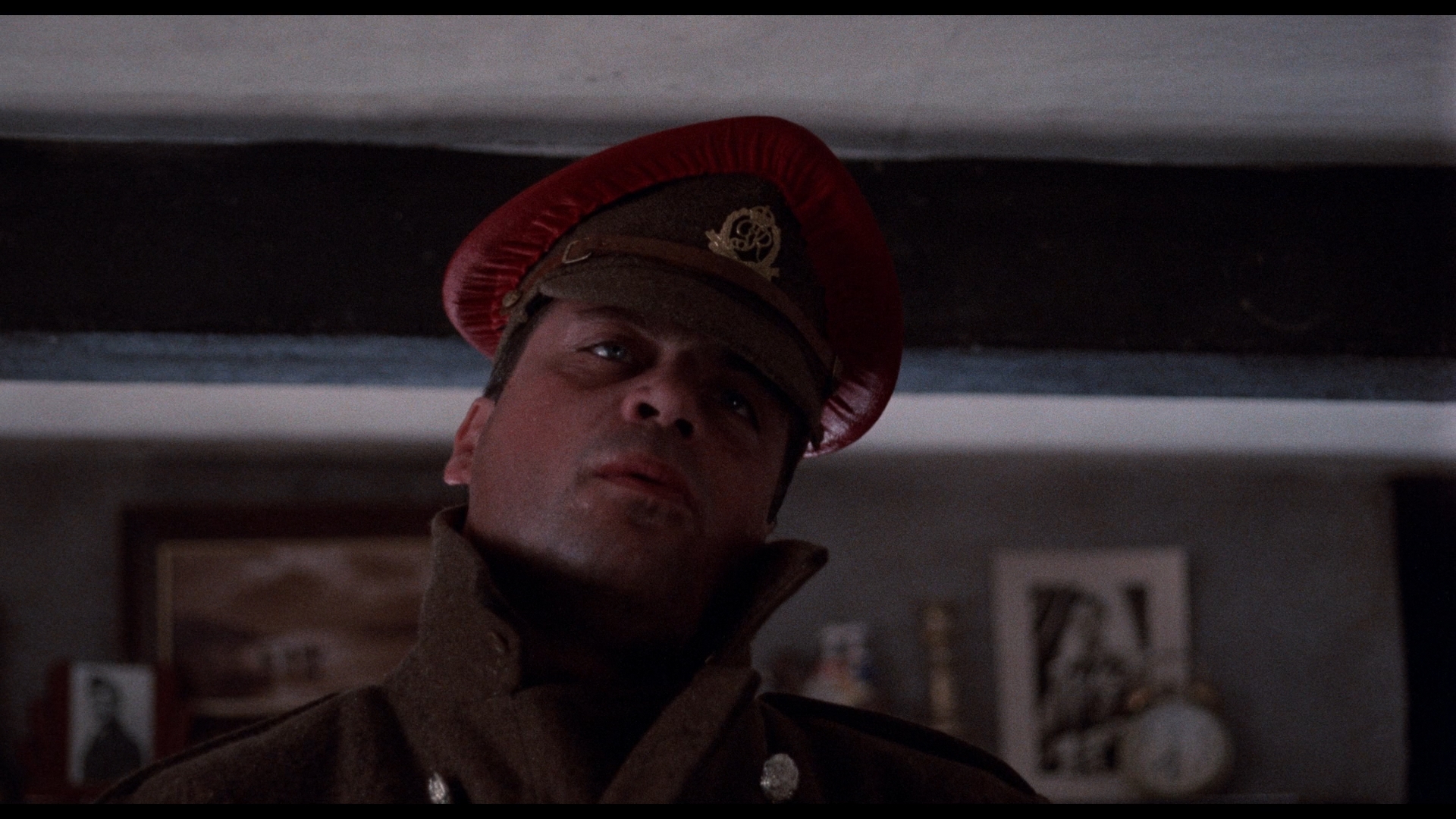 his own take on the Reed drinking story and explains how the cross-dressing nature of his role posed some particular challenges to the
his own take on the Reed drinking story and explains how the cross-dressing nature of his role posed some particular challenges to the 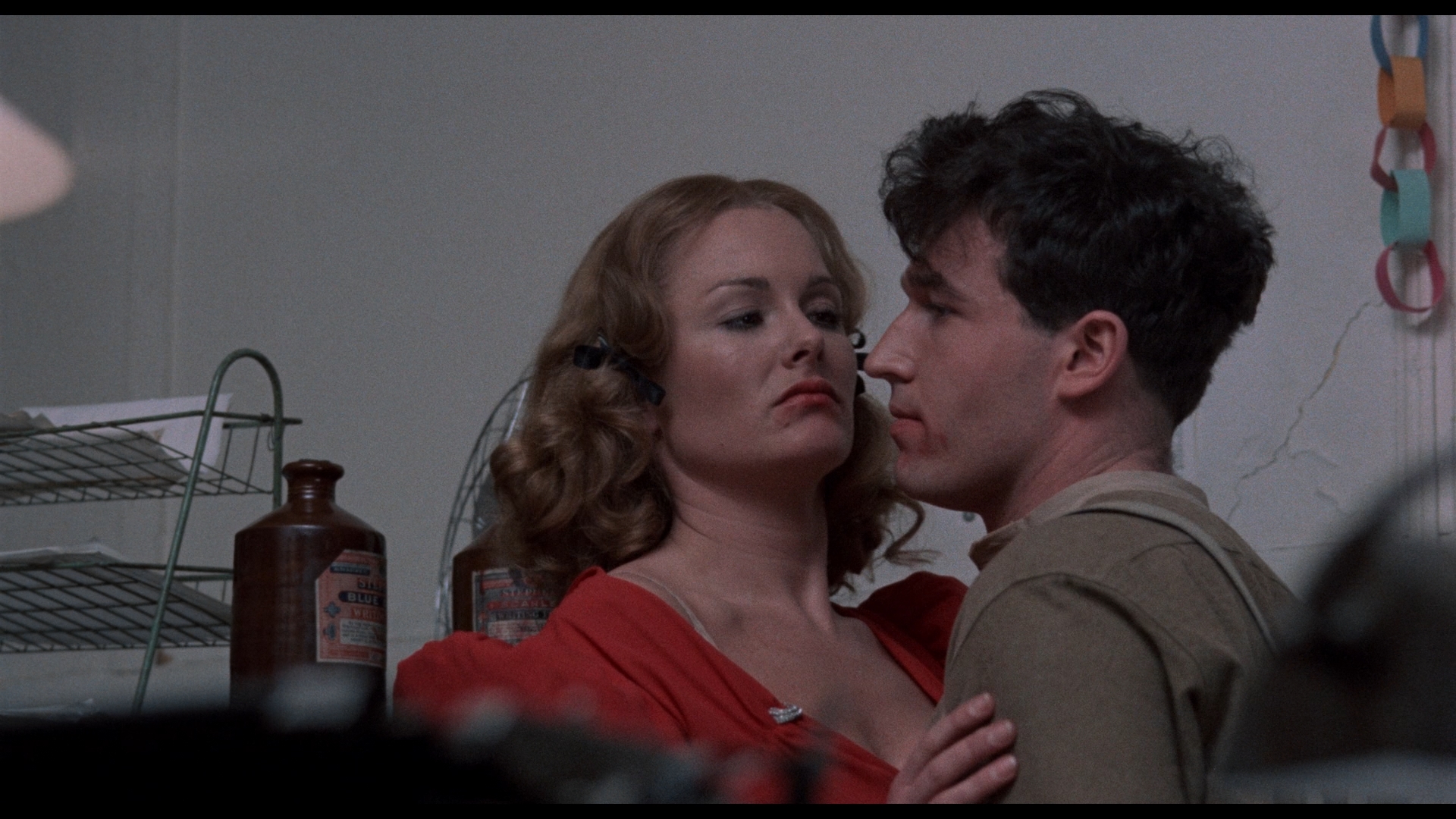 crew with Jackson in particular being a big help during production. He also tells a lengthy story about going to the film's premiere and recalls the contrasting professional and personal rapport between Reed and Jackson. Editor Barrie Vince appears next for "A Different Perspective" (24m33s) to explain how he and Apted explored different options with shots and editing techniques on the film, including a single-take reshoot that greatly improved a key scene and the task of coming up with the right way to pull off the tricky ending. In "Dressing Up" (8m55s), costume designer Emma Porteous offers her own views on how she came up with the right dress for Deacon including the obvious task of covering up some telltale signs of his gender. In "The Emotion of the Moment" (8m2s), composer Marc Wilkinson (If...) discusses the largely pastoral approach he took to his score and the period source music that ended up being handed off to someone else. Finally, author Neil Sinyard takes an overall view of the film in "A Sense of Justice" (22m42s) with a dissection of the film's 1970 source novel by H.E. Bates, the complex treatment of characterization and gender, and the film's place in Apted's early output. Finally the disc closes out with the film's condensed Super 8 version (19m34s), featuring optional subtitles as the audio's in rough shape, along with the theatrical and teaser trailers and a gallery of production and promotional photos. The limited, 3,000-united edition also comes with an insert booklet featuring new liner notes by Pasquale Iannone, an archival interview with Apted, a brief Bates written piece about the adaptation, sample critical reactions, and a look at the interesting trailer's creation by Jean Fouchet.
crew with Jackson in particular being a big help during production. He also tells a lengthy story about going to the film's premiere and recalls the contrasting professional and personal rapport between Reed and Jackson. Editor Barrie Vince appears next for "A Different Perspective" (24m33s) to explain how he and Apted explored different options with shots and editing techniques on the film, including a single-take reshoot that greatly improved a key scene and the task of coming up with the right way to pull off the tricky ending. In "Dressing Up" (8m55s), costume designer Emma Porteous offers her own views on how she came up with the right dress for Deacon including the obvious task of covering up some telltale signs of his gender. In "The Emotion of the Moment" (8m2s), composer Marc Wilkinson (If...) discusses the largely pastoral approach he took to his score and the period source music that ended up being handed off to someone else. Finally, author Neil Sinyard takes an overall view of the film in "A Sense of Justice" (22m42s) with a dissection of the film's 1970 source novel by H.E. Bates, the complex treatment of characterization and gender, and the film's place in Apted's early output. Finally the disc closes out with the film's condensed Super 8 version (19m34s), featuring optional subtitles as the audio's in rough shape, along with the theatrical and teaser trailers and a gallery of production and promotional photos. The limited, 3,000-united edition also comes with an insert booklet featuring new liner notes by Pasquale Iannone, an archival interview with Apted, a brief Bates written piece about the adaptation, sample critical reactions, and a look at the interesting trailer's creation by Jean Fouchet. ![]()